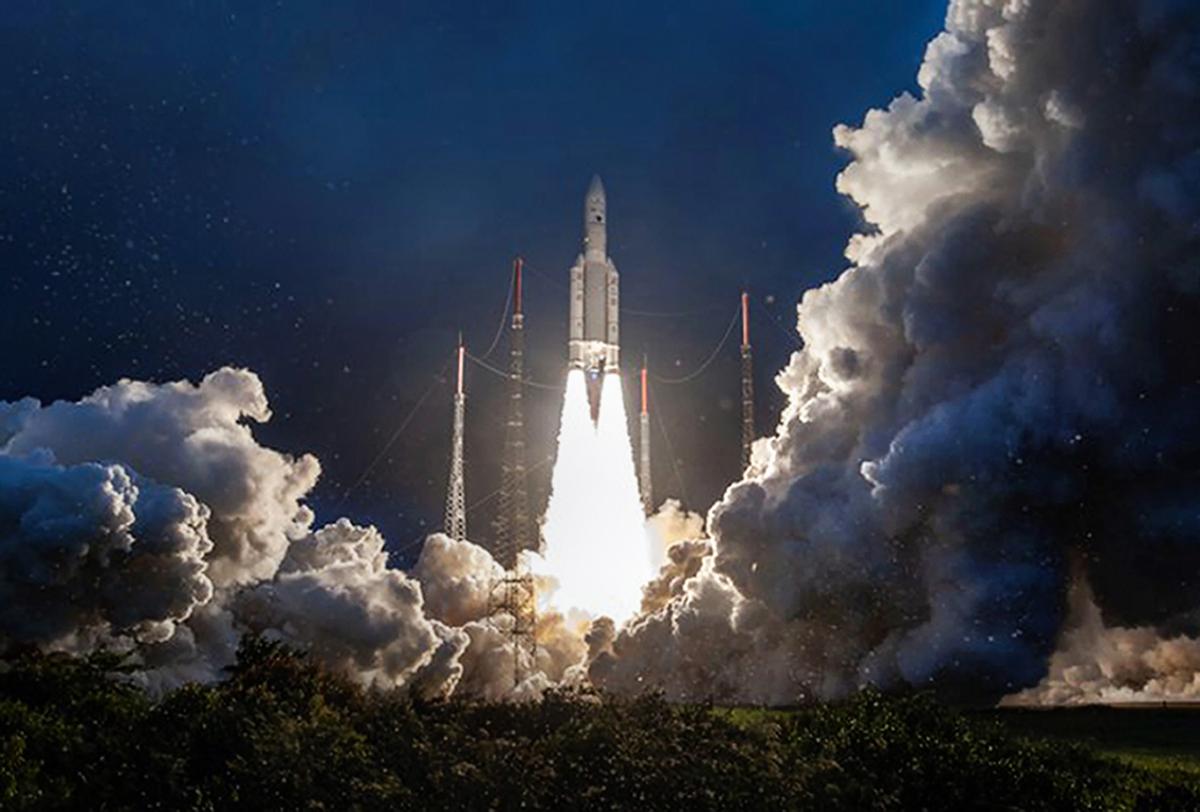
India’s space sector is on the brink of a transformative era, thanks to a landmark amendment in its Foreign Direct Investment (FDI) policy.
This important change opens the door wide for global investors, beckoning a future filled with innovation, job creation, and substantial economic advancement. It also sets the stage for an unprecedented level of international collaboration and growth.
The amendment delineates the satellite sub-sector into three distinct activities, each with specific limits for foreign investment. This strategic segmentation paves the way for a more organized and focused approach to attracting global investment. The Indian Space Policy 2023 serves as a comprehensive guide for this new direction.
Streamlining Investment
For Satellites, gone are the days of restrictive policies! The sub-sector is now divided into three categories, with each allowing up to 100% FDI through the automatic route. This enables foreign investors to collaborate with Indian companies, boosting manufacturing, data services, and ground infrastructure.
For launch vehicles and associated systems or subsystems, the creation of Spaceports for launching and receiving Spacecraft, up to 49% FDI is now automatic, paving the way for partnerships in this crucial segment.
For manufacturing of components and systems/ sub-systems for satellites, ground segment and user segment, up to 100% FDI is automatic. This liberalization is designed to attract potent investors into the Indian space industry, fostering a conducive environment for technological absorption and making the sector self-reliant.
Fast-paced Growth
Awais Ahmed, Founder CEO, Pixxel sees it as a catalyst for the space industry, enabling access to global investment and strategic capital.
“The move will catalyze the entire space industry by enabling a larger and global pool of investment capital as well as strategic capital to come into India. It is much needed to not only scale existing companies to becoming globally competitive but also helps more startups get started in the first place”
“This historic decision paves the way for unprecedented growth and innovation, fostering a new era of space exploration and commercialization in India”, believes Sanjay Nekkanti, CEO, Dhruva Space.
Charting new orbits for growth and innovation!
Our government has updated the FDI policy in the space sector, paving the way for a galaxy of opportunities. https://t.co/XHyGy5iLAs https://t.co/0jGDwW3RiB
— Narendra Modi (@narendramodi) February 22, 2024
Accelerating Exploration
“With 74-100% FDI, we anticipate faster developments & accelerating our journey of exploration and discovery. I think heavens are open for business from India”, says Suyash Singh, CEO & Co-Founder, GalaxEye.
“The decision to open the Indian Space sector to FDI fosters a new era of space exploration and commercialization in India”, states Ankit Bhateja, Founder & Director, Xovian Aerospace.
“This move will help to attract global investors, foster innovation, create jobs, and drive substantial economic growth. It will also help existing companies to scale up and make startups more competitive globally”, he adds.
Global Integration
Lt. Gen. AK Bhatt (Retd.), Director General, Indian Space Association(IsPA), welcomes the policy for its potential to integrate India into global value chains and attract the latest technological advancements.
“The liberal FDI limits by automatic route for end-to-end satellite manufacturing & operation, components and systems/ sub-systems for satellites, satellite data products and ground segment & user segment, launch vehicles, creation of spaceports will boost the confidence of all space industry members, including the biggest global players in the space and satellite domain”.
“After the pioneering initiative to administratively allocate satellite spectrum, today’s decision to allow a liberal FDI policy for space is yet another significant move forward”.
“Startups will now have excellent funding opportunities and can make the best use of it towards innovation and developing new technologies”, says Ajey Lele, a space industry observer, and Senior Fellow, Manohar Parrikar Institute for Defence Studies and Analysis.
Grey Zone?
Though the policy aims to unlock India’s potential in space through enhanced private participation and augment space capabilities, segregation may lead to some ambiguities.
“It’s a good move but the devil is in the details. The reason for such bifurcation is not clear. It will increase the paperwork”, says Arup Dasgupta, Managing Editor, Geospatial World and Former Deputy Director ISRO .
“The area that requires massive FDI, launch vehicles, is restricted to 49%. Components and subsystems get 100% possibly with an eye on the export market”, he adds.




















